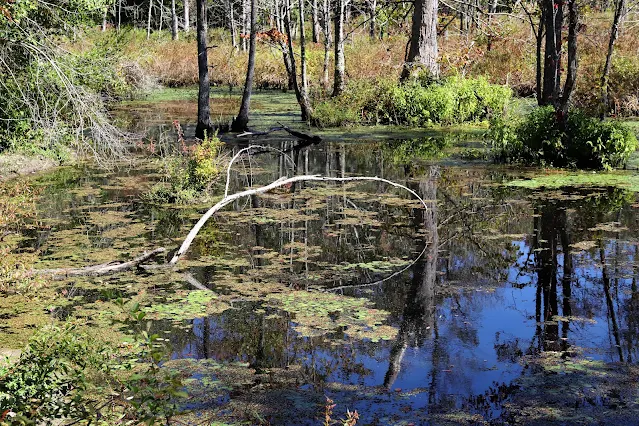Thursday, September 26, 2024
Wednesday, September 25, 2024
Wisdom Teeth
Okay, well, this is a little bit different. I finally had my upper wisdom teeth extracted. A little late by current dental standards, but I remember this being a matter of some controversy back when I was of the age most people got their wisdom teeth removed. The idea was that if they weren't causing the patient any particular problems (e.g. impacted, decayed, whatever), then perhaps it was best to just leave them be. My dentist at the time, evidently, was of that persuasion.
How about you? Still got yours?
Tuesday, September 24, 2024
Monday, September 23, 2024
Sunday, September 22, 2024
Saturday, September 21, 2024
"Ears"
Powhatan Creek Trail
Curious about why we call corn "ears"? Well, so was I. So I looked it up. Here is some of what I found from Grammaphobia:
The “ear” of corn that we eat in summer and the “ear” that we hear with are unrelated. Yes, these are two separate and distinct words, both of which have been with us since Anglo-Saxon days and have different prehistoric roots.
In Old English, Middle English, and Modern English, the word “ear” has been used to mean a spike or head of grain. The Oxford English Dictionary defines it as “the part of a cereal plant which contains its flowers or seeds.”
Here’s a typical citation from the OED: “The ripen’d Grain, whose bending Ears Invite the Reaper’s Hand” (from a 1740 poem by William Somerville).
This spiky agricultural “ear” is descended from an ancient Indo-European root that’s been reconstructed as ak (“sharp”). It became the Proto-Germanic akhuz, which eventually gave us the Old English word ear around the year 800.
Friday, September 20, 2024
Subscribe to:
Posts (Atom)










